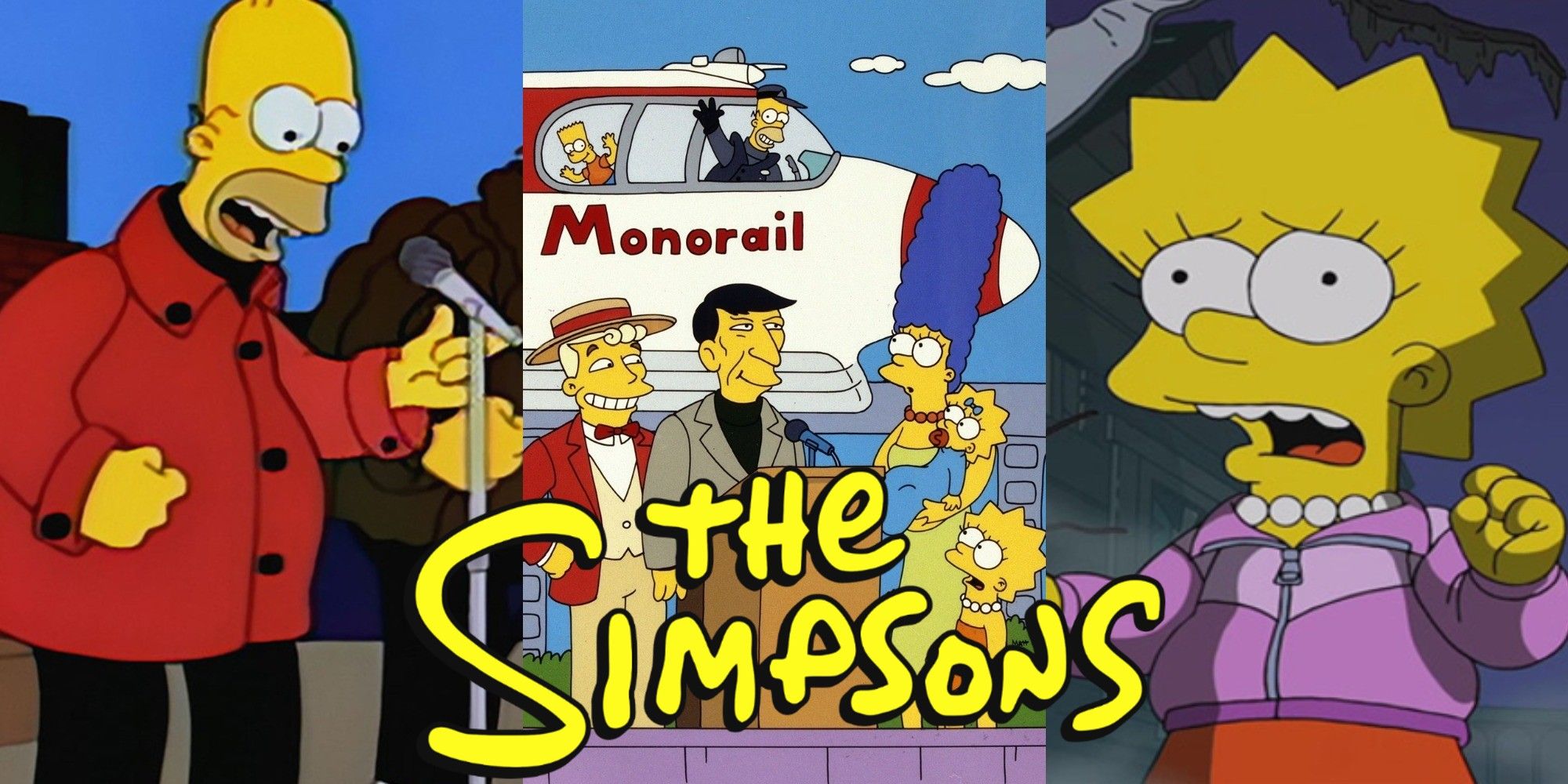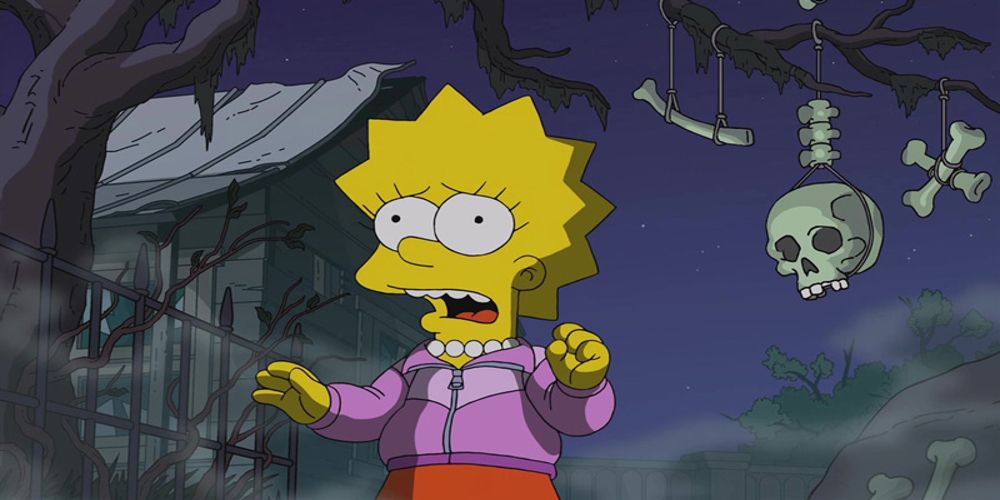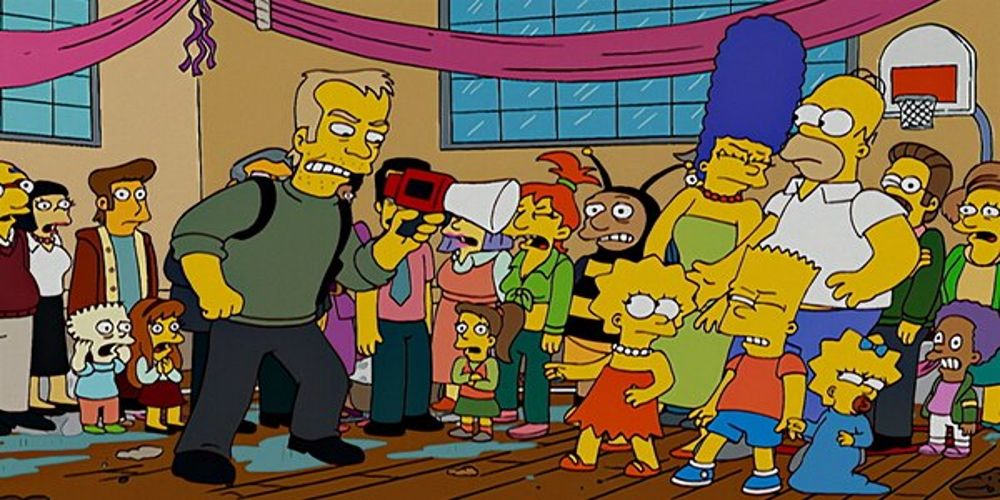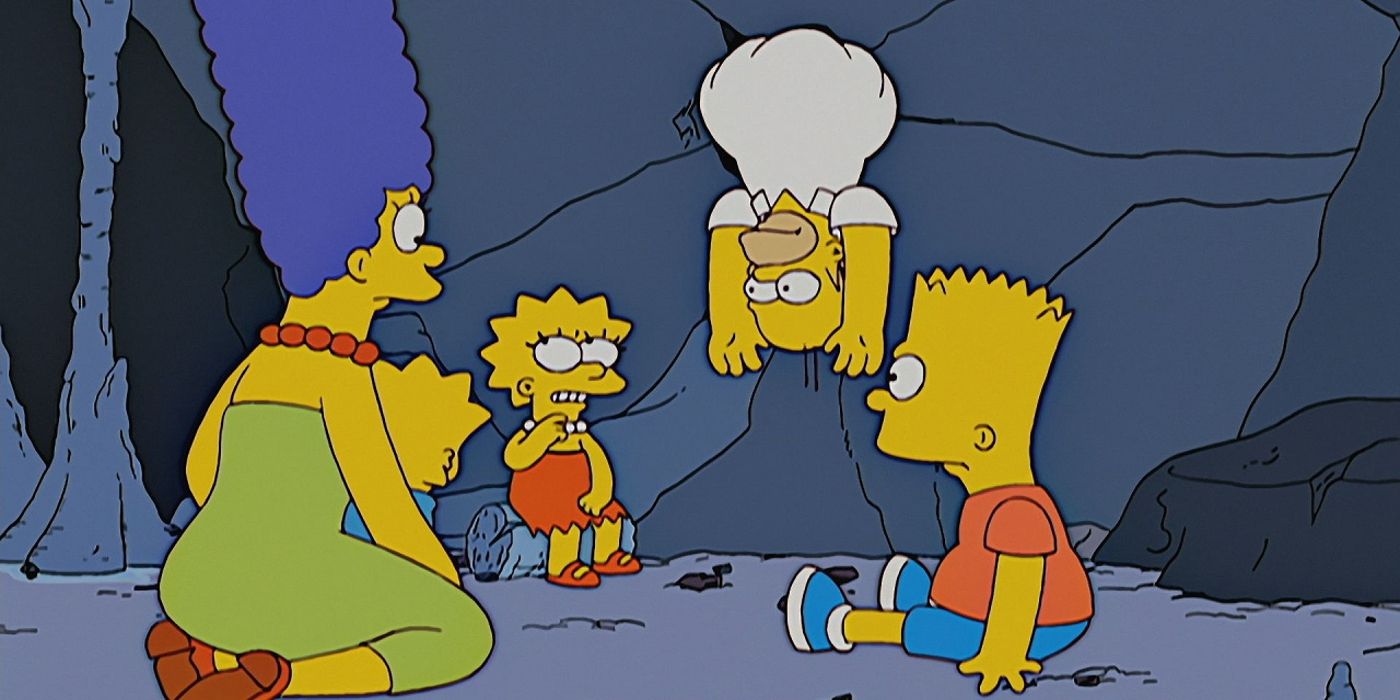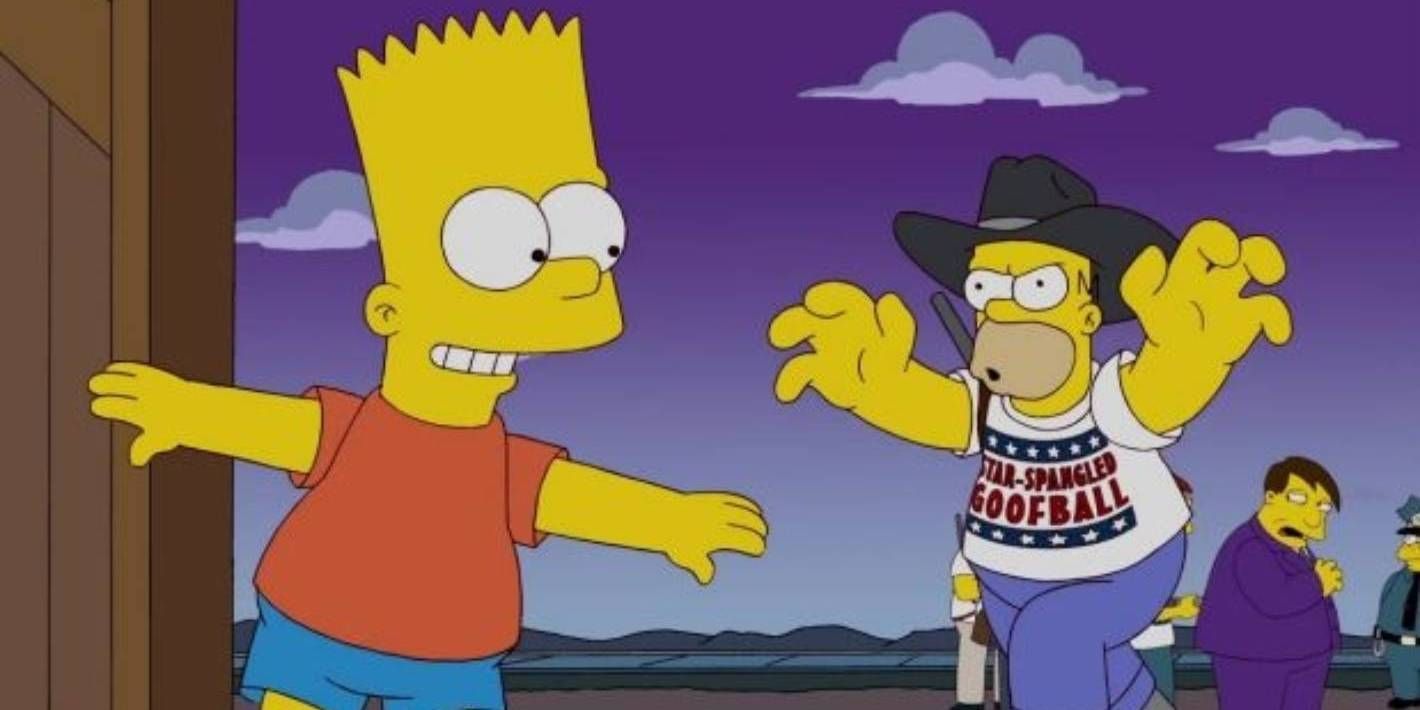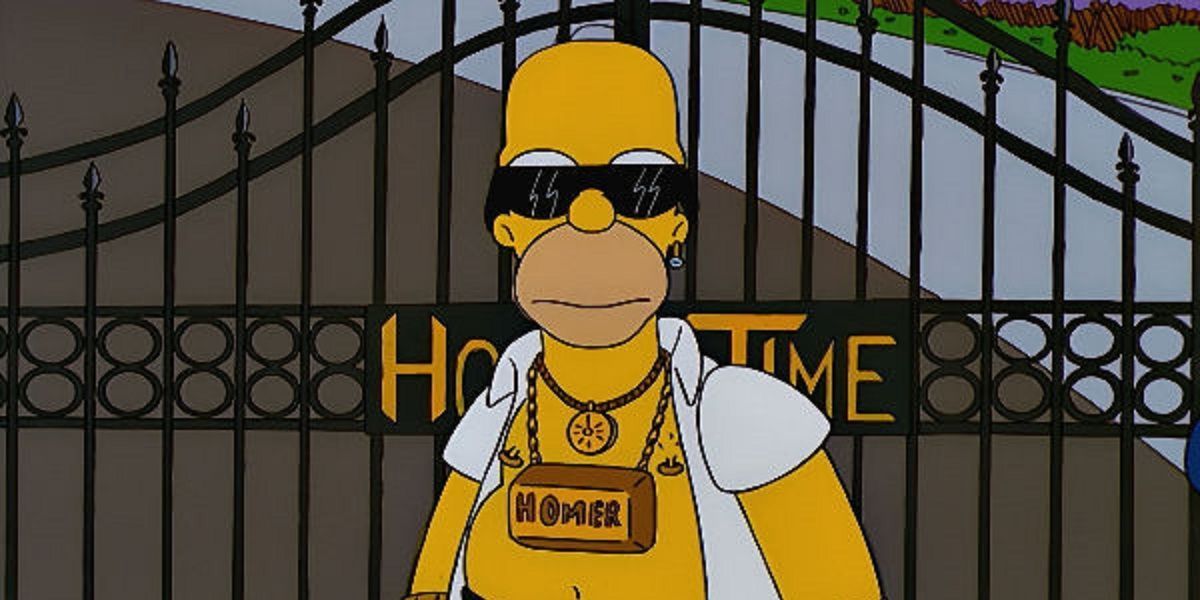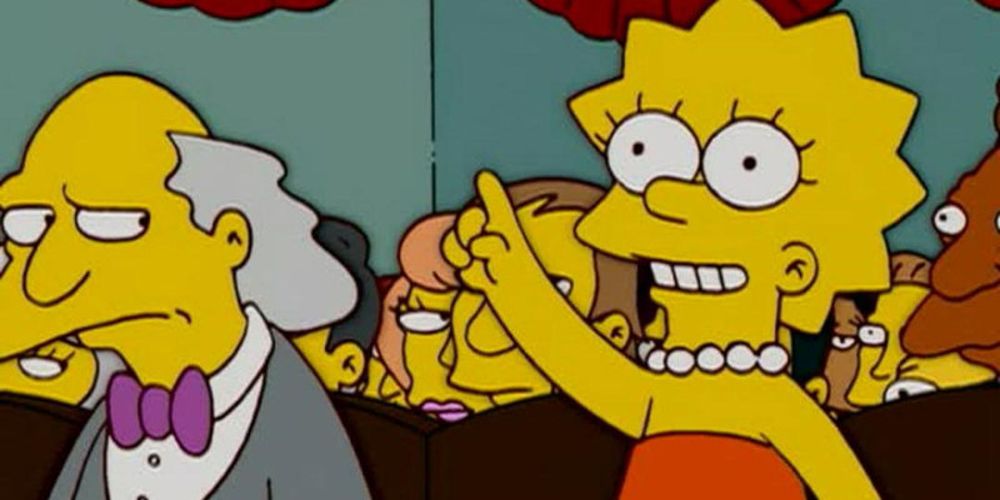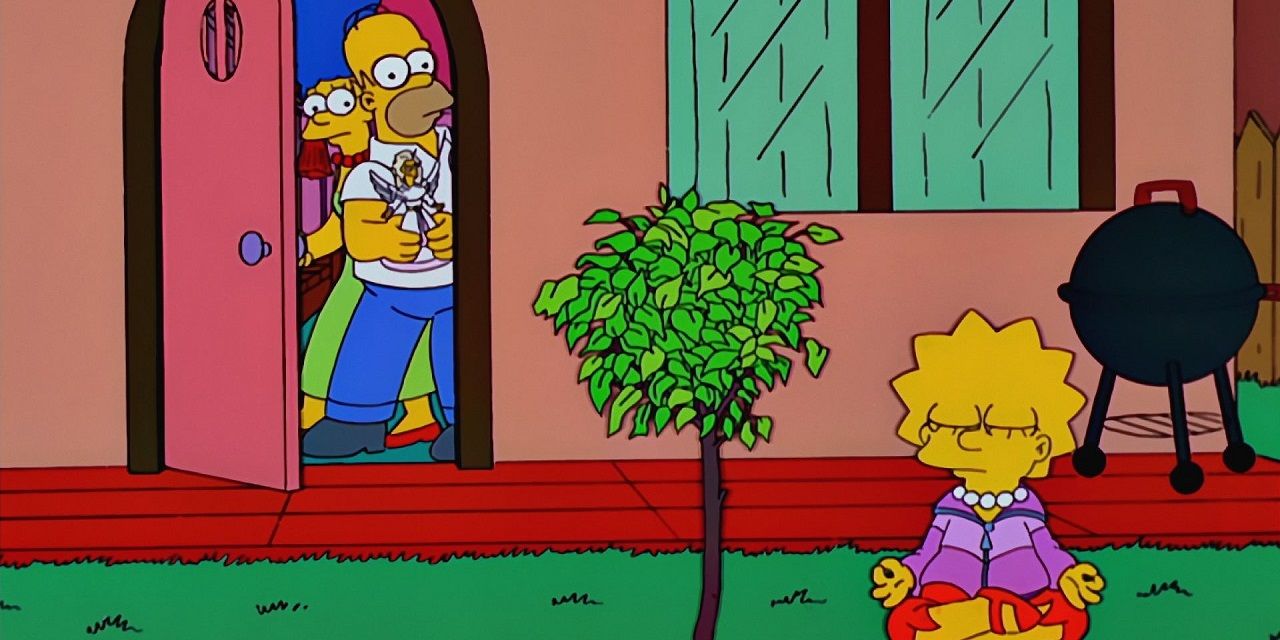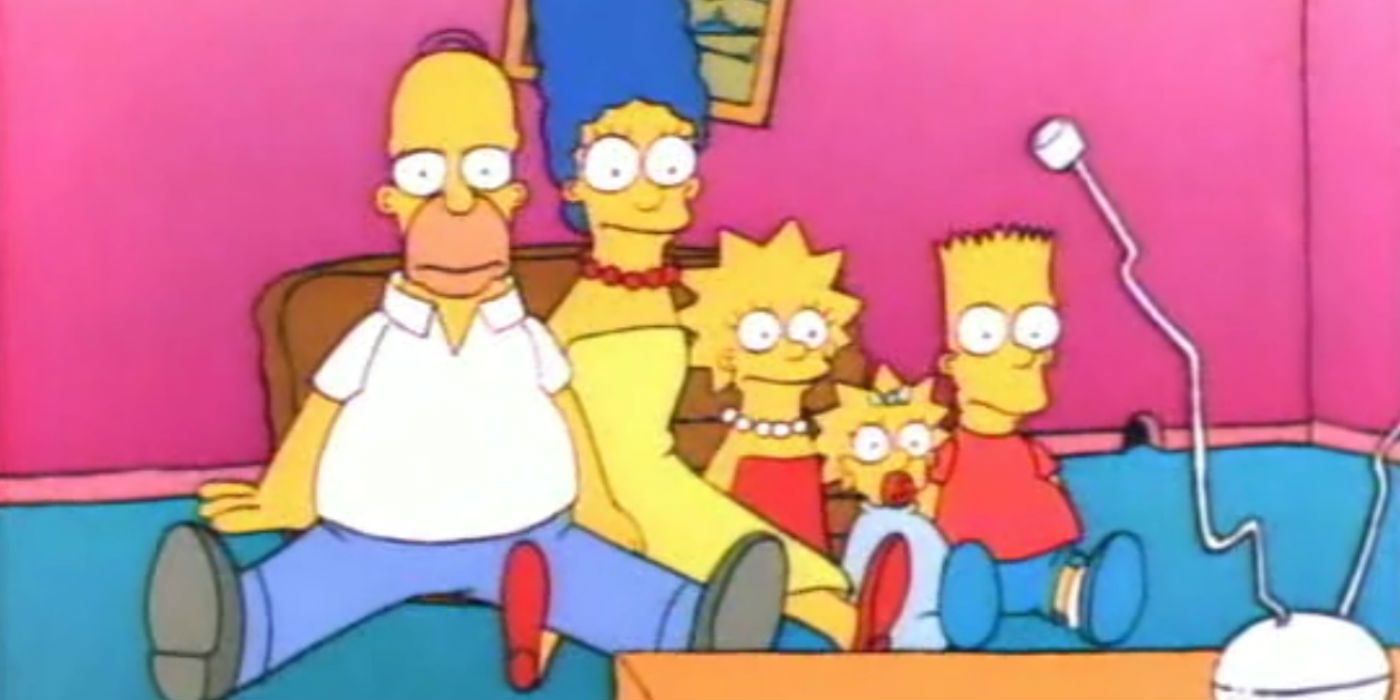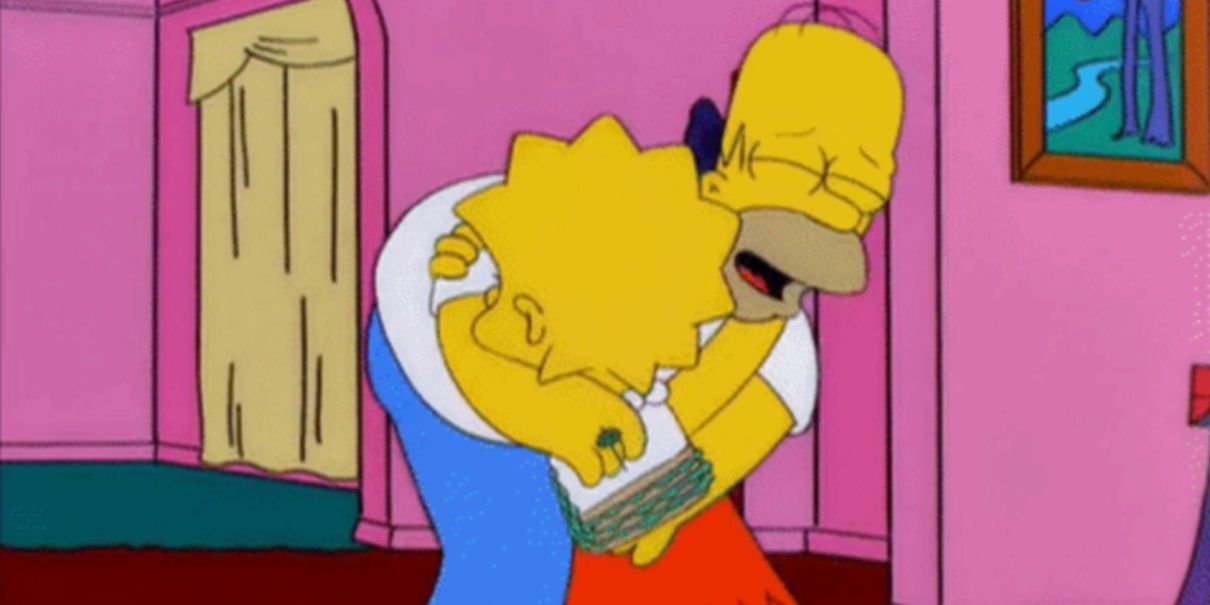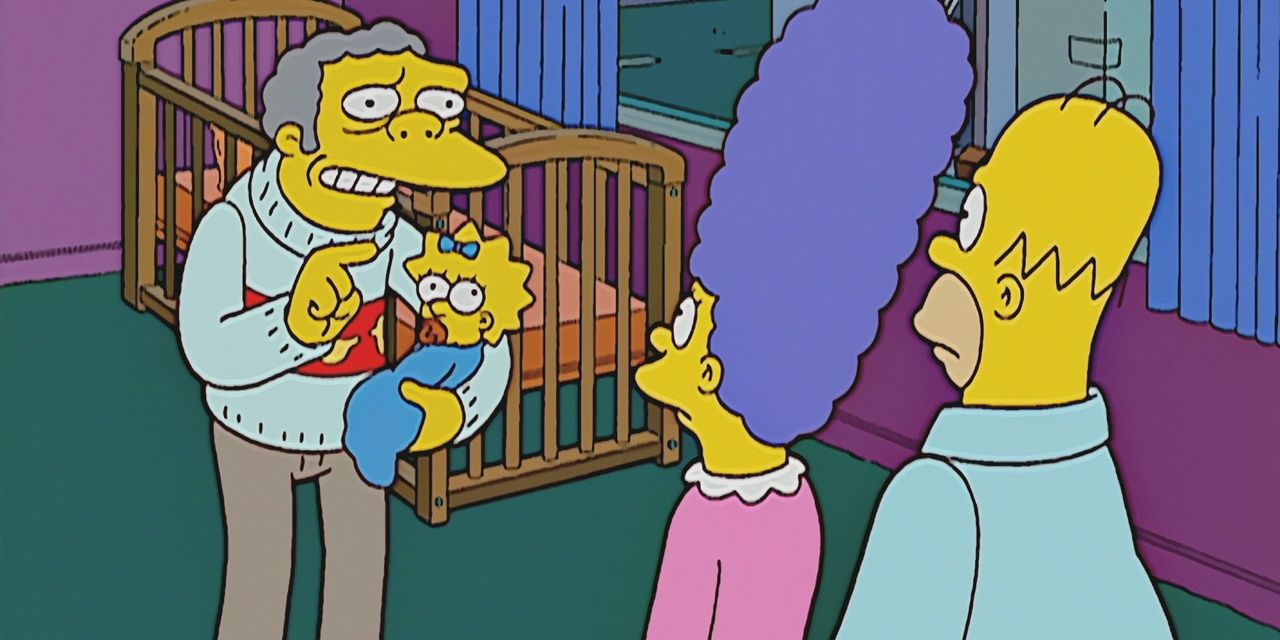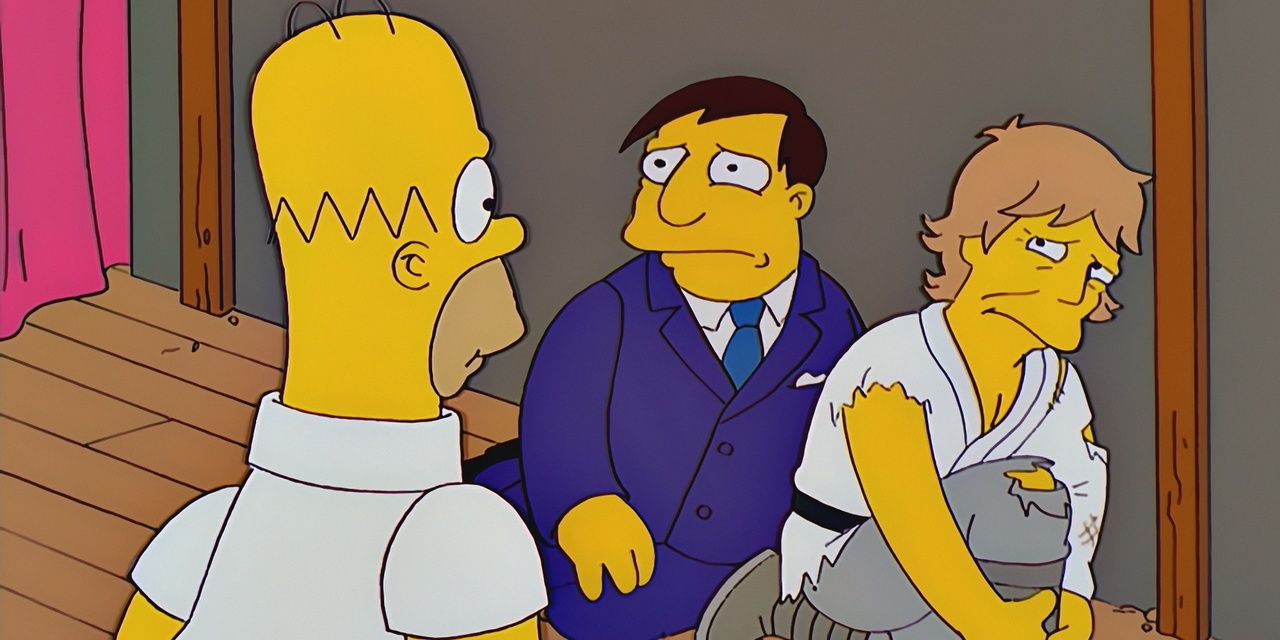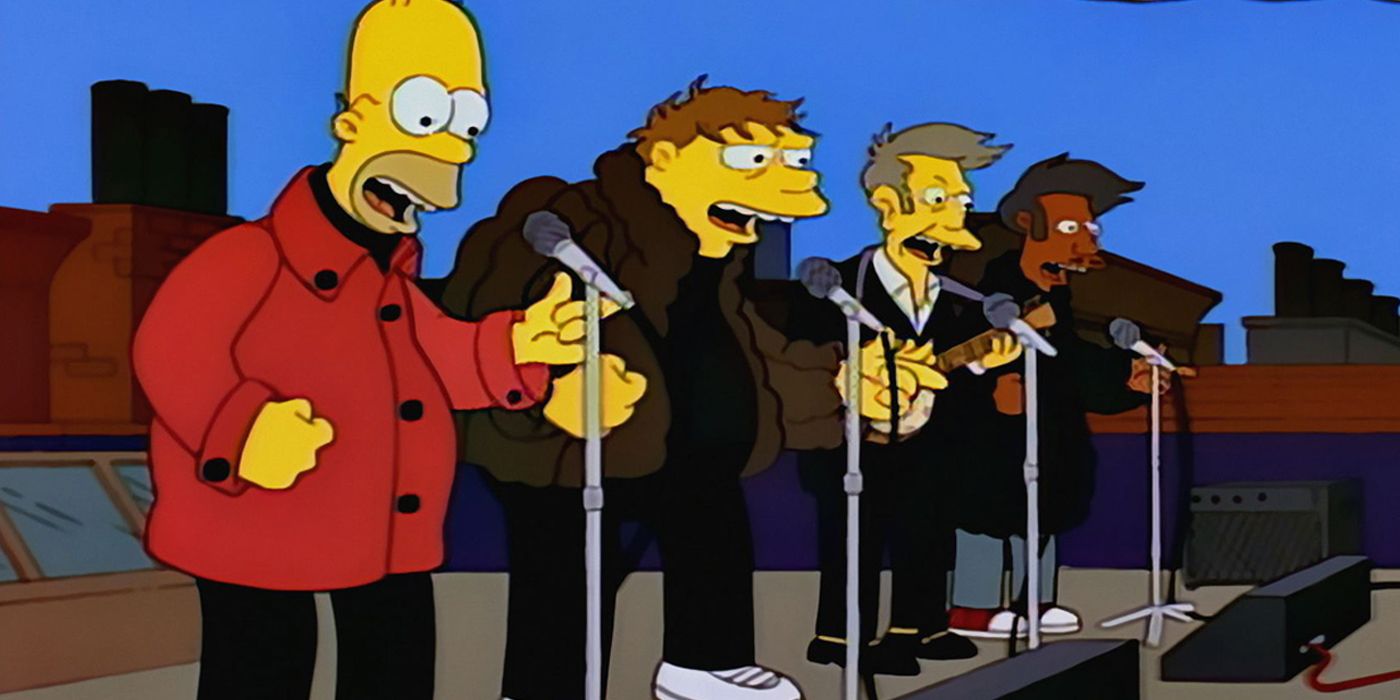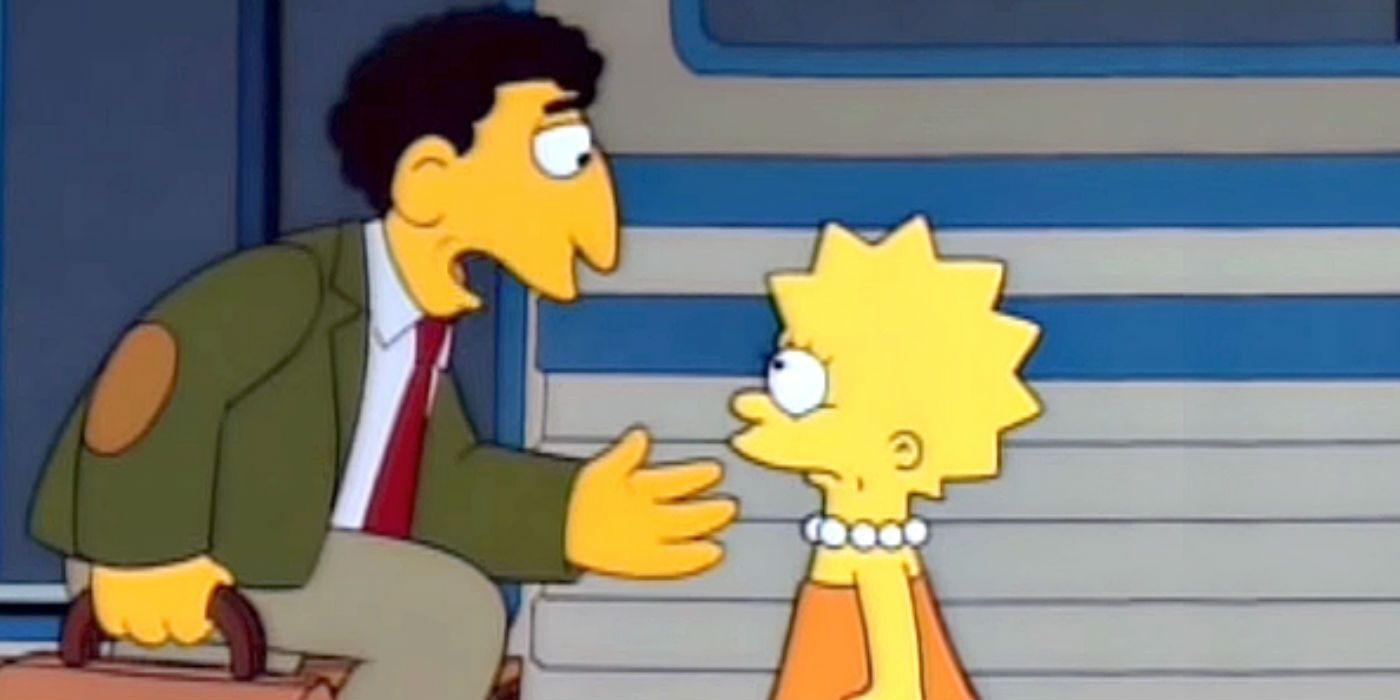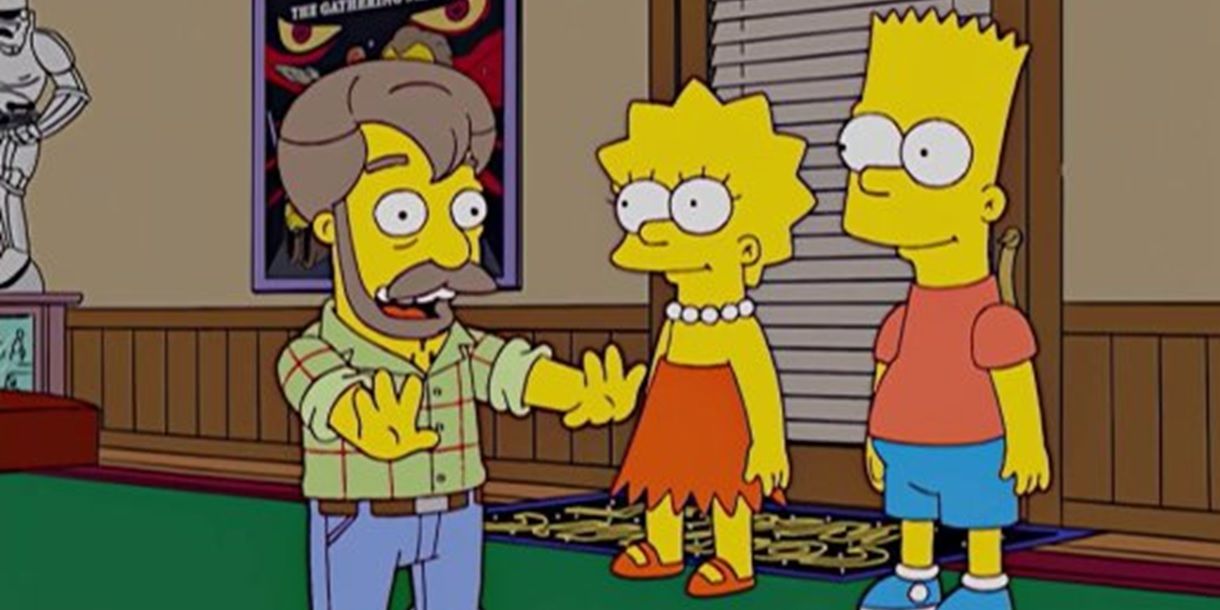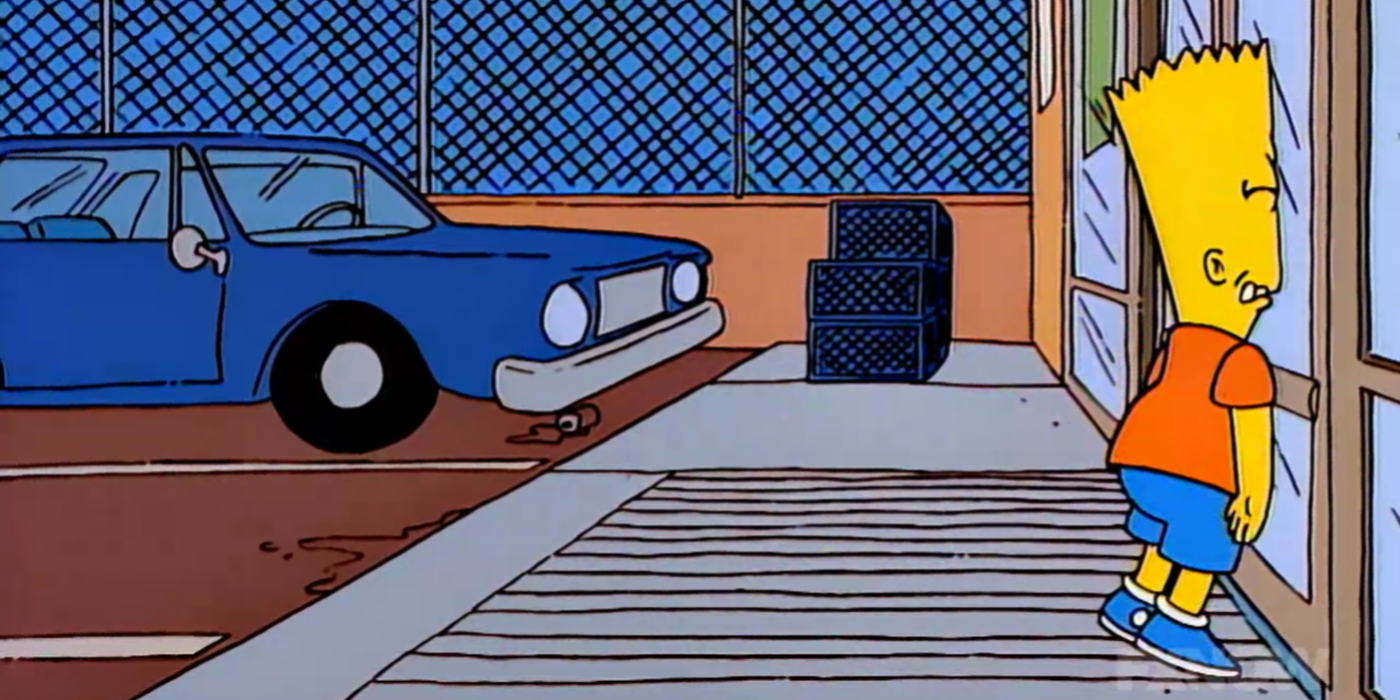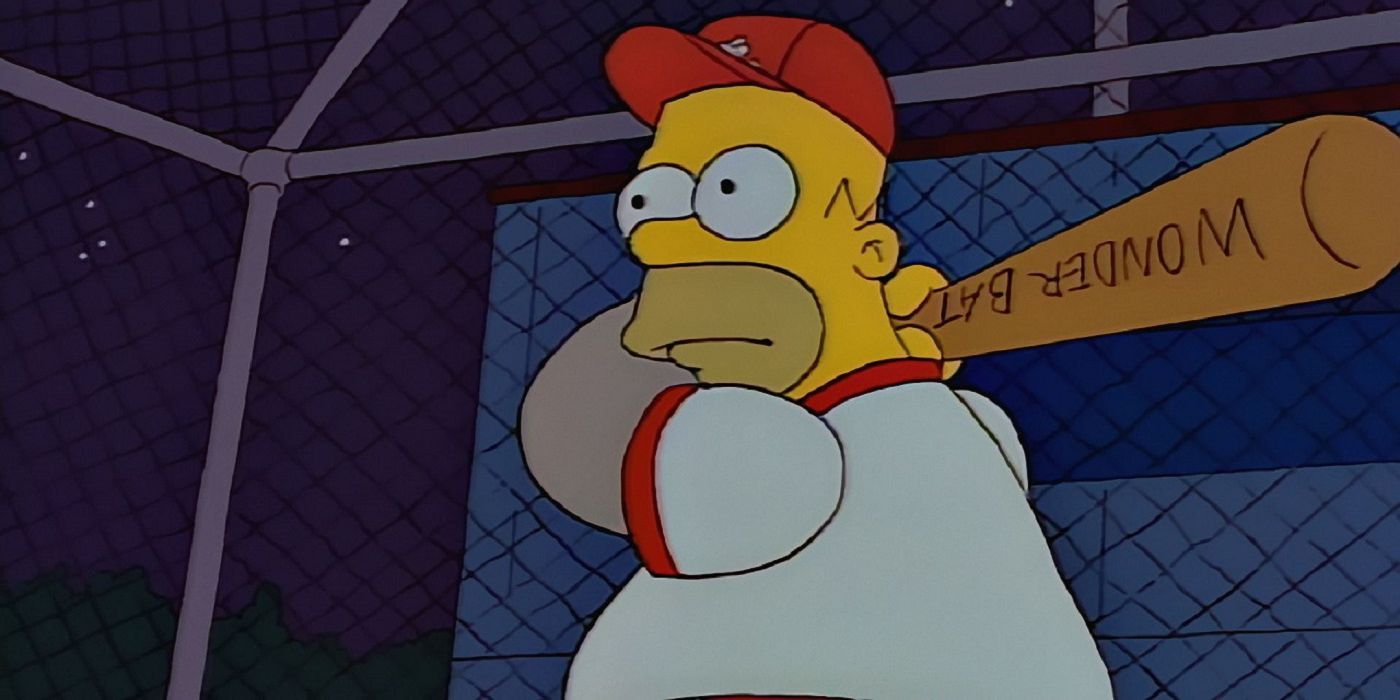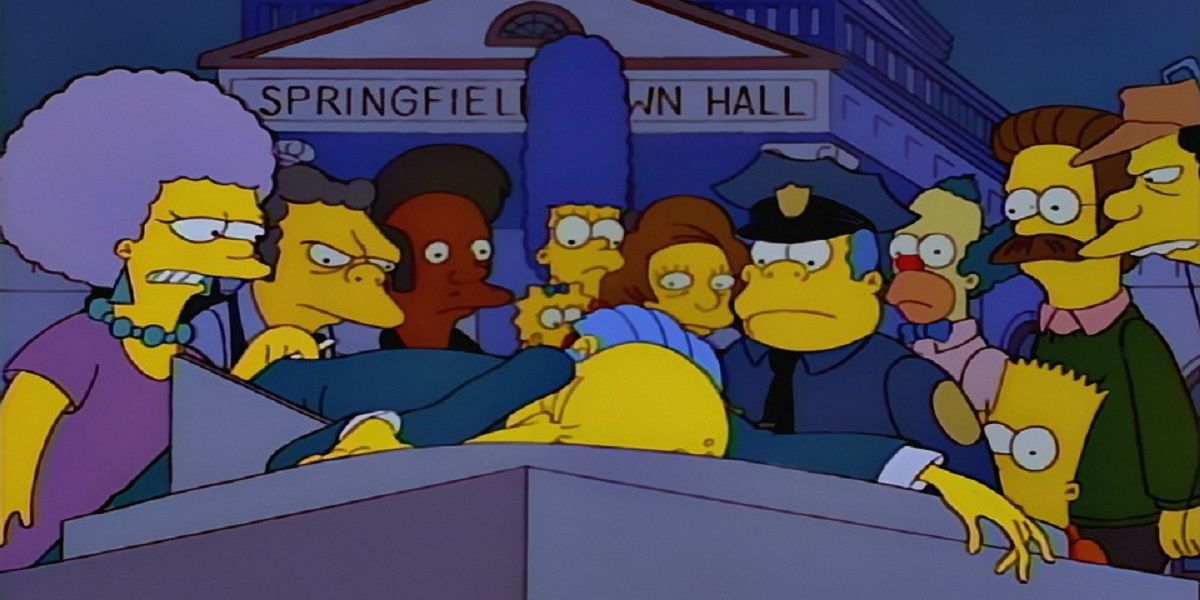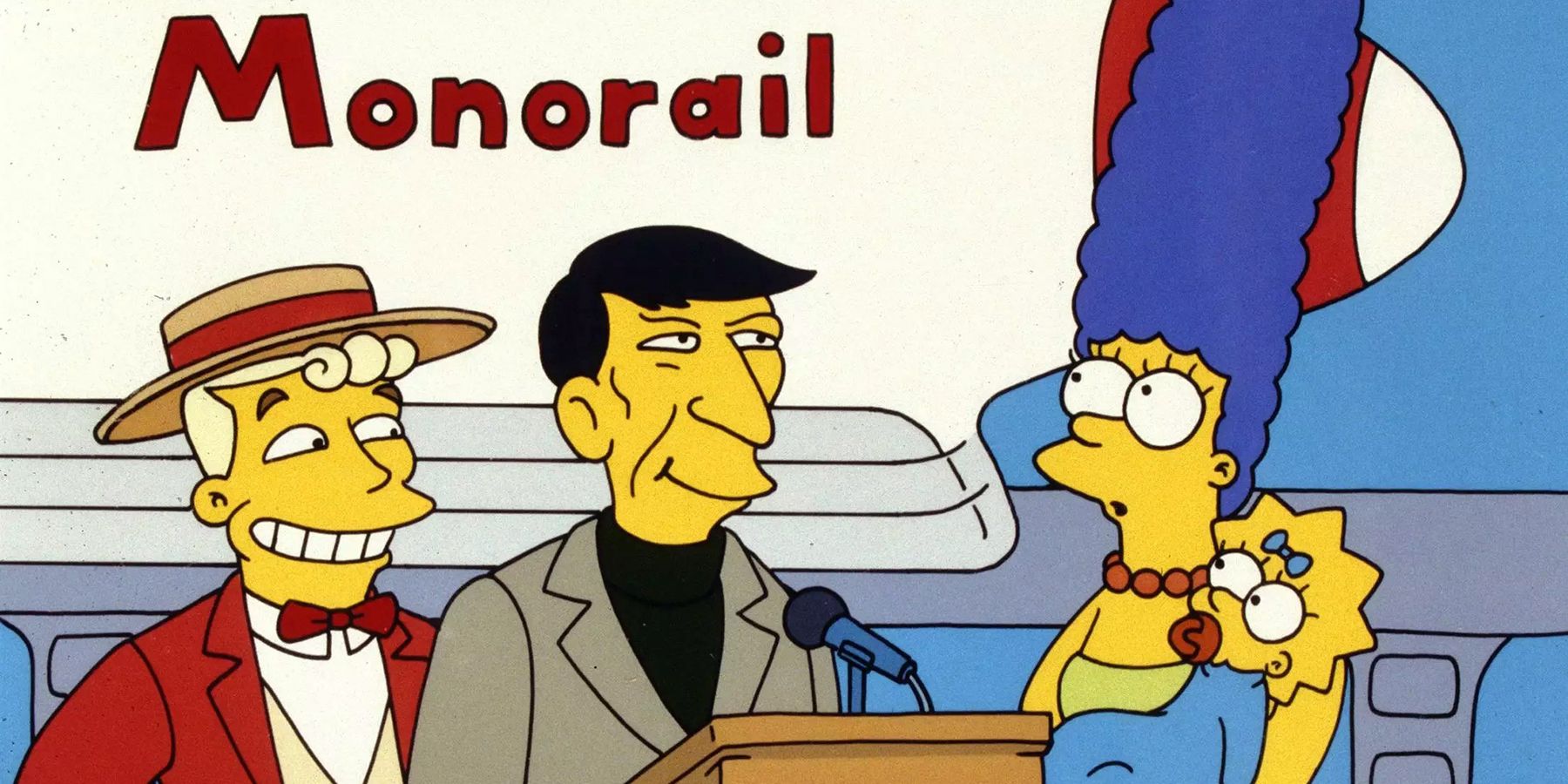Despite its decline in quality in the past few years, The Simpsons still has a claim for the greatest TV series ever made. The first adult animated sitcom to gain widespread attention, the series first took the form of a recurring skit on The Tracy Ullman Show before morphing into a fully-fledged television dynamo.
It’s not that the post-Golden Age episodes are bad; it’s just that, compared to the dizzying heights of the Simpsons' Golden Age episodes—some of the finest installments of television to ever hit the airwaves—the decline in quality is noticeable. The show had some perfect seasons in the early days, but what's the best Simpsons season?
Updated on October 27th, 2021 by Tanner Fox: As viewership continues to decline, recent entries in the long-running animated anthology that is The Simpsons still can't seem to find their footing. Once one of the most hard-hitting satirical series ever to air, The Simpsons now feels like a ghost of its former self.
That said, there's never been a better time to reminisce about the series glory days. The show attained such legendary status for good reason, and, while its glory days may well be behind it, persisting fans can still find plenty to like in episodes from years gone by.
Season 27
Arguably one of the best Simpsons seasons in recent memory—though that's not saying much—Season 27 was a passable-if-forgettable affair that offered a few laughs and, most notably, featured two separate Halloween episodes. Holidy-themed episodes were nothing new for the series, but this actually marks the first time the family has celebrated Halloween outside of a Treehouse of Horror installment.
Cracks in the show's framework were beginning to manifest in the form of oddball episodes like "Every Man's Dream" and "Teenage Mutant Milk-Caused Hurdles," but, on the whole, the series remains competent enough to be worthy of a watch.
Season 18
Many longtime Simpsons fans consider season 18, which premiered in 2006, to be fairly forgettable save for one semi-legendary lampooning of FOX's then-popular action series 24. Though it's lost some luster over the past fifteen years, the episode "24 minutes" is still one of the few post-2000 episodes that fans need to see.
Season 18 also includes a few funny-enough episodes like "Stop! Or My Dog Will Shoot" as well as the heartwarming "Moe'N'a Lisa," but it also has a couple of complete duds like "Marge Gamer."
Season 17
2005's Season 17 showcased a surprising willingness on the part of the show's writers to focus on minor, oft-neglected characters; episodes like "Milhouse of Sand and Fog," "The Italian Bob," and "Million Dollar Abie" heavily feature characters like Millhouse, Sideshow Bob, and Abe Simpson. The mid-season episode "The Seemingly Never-Ending Story" also won an Emmy, marking the series' ninth overall win.
While it doesn't contain any crucial or culturally relevant episodes, season 17 was a solid continuation of the series which comes across as worlds apart from The Simpsons' apparent decline around ten years later.
Season 20
The first episode of The Simpsons to broadcast in HD, season 20 served as something of a milestone for the series. Tying Gunsmoke in total number of seasons, The Simpsons still had enough charm to reel viewers in, though, even in 2008, some gags and premises were starting to wear thin.
There are a lot of forgettable installments in this season, but that's shouldn't overshadow some of its best episodes. "Sex, Pies and Idiot Scrapes" and "Coming to Homerica" are hilarious, while "The Good, The Sad, and The Drugly" offers a poignant message.
Season 11
In the sweet spot between Homer’s storylines getting zanier and the rise of “Jerk Homer,” season 11 sees the Simpson patriarch try to connect with Maggie, team up with Mel Gibson, become a food critic, join a motorcycle gang and a leper colony, and become a Christian missionary on a remote island to outrun his creditors at PBS.
Season 11 was particularly good to those who can't get enough of Homer. Episodes like “Bart to the Future,” “Alone Again Natura-Diddly,” and “Saddlesore Galactica” might represent early low points for the series, but, in some ways, the controversy those episodes invited made them fascinating. Season 11 also ends with the brilliant meta episode “Behind the Laughter.”
Season 16
Few fans would argue that The Simpsons' Season 16 deserves to be ranked among the series' greatest installments, but it's by and large a competent collection of episodes that serves to entertain without relying too heavily on the played-out jokes and uninspired satirical takes that would doom later seasons.
Some of the season's best offerings include "Sleeping with the Enemy," "Midnight Rx," and the humorously outdated "Future-Drama" in which the Simpson kids get a glimpse of what their lives are like in the distant year of 2013.
Season 9
Although it’s let down by “The Principal and the Pauper” which controversially revealed Seymour Skinner to be an impostor, season 9 has plenty of gems. Opening with the hilarious “The City of New York vs. Homer Simpson,” the show’s ninth season contains such greats as “Bart Star” and “The Cartridge Family.”
It also has some terrific Lisa-centric episodes, such as “Lisa’s Sax,” “Lisa the Simpson,” and “Lost Our Lisa.” This season’s “Treehouse of Horror” installment is delightfully eerie, too.
Season 13
There’s a lot going on in each of season 13’s episodes: “The Bart Wants What It Wants” layers Hollywood satire over a love triangle involving Bart and Milhouse, “The Lastest Gun in the West” lampoons western tropes, but it also comments on alcohol abuse, and “I Am Furious (Yellow)” spoofs the comics industry with a great caricature of Stan Lee played by the Marvel legend himself.
The season also has some pretty thoughtful installments, like “She of Little Faith” in which Lisa questions her Christian faith and converts to Buddhism in an honest reflection on freedom of religion.
Season 1
The Simpsons didn’t get into any wacky or absurdist territory until the Springfield Gorge jump in season 2’s “Bart the Daredevil” marked an integral stylistic turning point. In its first season, it was a traditional family sitcom. But, with the series’ dense plotting and huge cast of supporting characters, more traditional sitcom-esque episodes of The Simpsons still rank among the genre’s all-time greats.
The tone of the series might not be there yet, but Homer, Marge, Bart, Lisa, and even Maggie arrive as fully rounded characters, unlike Family Guy’s Griffin family, who morphed into more distinguishable characters a couple of seasons down the line.
Season 12
By the series’ twelfth season, fans were pretty familiar with the Simpson clan. This allowed the writers to come up with self-referencing concepts like “HOMR” and surreal premises like the existential, paranoid “The Computer Wore Menace Shoes.”
Season 12 also has a ton of great episodes based around ancillary characters: “Skinner’s Sense of Snow,” for example, is one of the best Skinner-focused episodes. Unfortunately, this season also has “Homer vs. Dignity,” which has that infamous panda scene.
Season 14
Although it arrived past The Simpsons’ prime, season 14 of The Simpsons offers up quite a bit of entertaining material. The episode “Bart vs. Lisa vs. the Third Grade,” in which Bart is dropped down a grade and Lisa is bumped up a grade, forcing them into the same class, is a hilarious and heartfelt study of their relatable sibling relationship.
In “How I Spent My Strummer Vacation,” Homer attends rock ‘n’ roll, and the episode features iconic rockers as Mick Jagger, Lenny Kravitz, and Tom Petty as guest stars. “Moe Baby Blues” is a poignant look at Moe’s depression as he finds a renewed sense of hope in his friendship with Maggie. Season 14 plays around interestingly with the audience’s familiarity with the characters without using it as a crutch.
Season 8
In its eighth season, The Simpsons moved into more ridiculous, far-fetched storylines such as Bart getting his own credit card under the name Santos L. Halper, Homer becoming the third main cast member in "The Itchy and Scratchy Show," and Mulder and Scully visiting Springfield in a crossover with Fox’s other hit ‘90s show The X-Files.
Still, as far as ridiculous, far-fetched storylines go, Season 8 is still just as sharp, insightful, and hysterical as the show has ever been. It also has the all-time classic “You Only Move Twice” and the heartfelt Bart/Lisa episode “The Secret War of Lisa Simpson.”
Season 10
Widely regarded as the end of The Simpsons’ so-called “Golden Age,” Season 10 has a number of standout installments. It might have been the end of the show’s reign as television’s gold standard—as evidenced by such lazily written storylines as Alec Baldwin and Kim Basinger hiring Homer as their personal assistant—but it went out with a bang.
Season 10 has Mark Hamill’s hilarious guest appearance in “Mayored to the Mob,” Homer showing Flanders a good time in “Viva Ned Flanders,” and Homer’s new name Max Power in “Homer to the Max.” It’s a hilarious and unfortunately underrated season.
Season 5
With such classics as “Cape Feare,” a hysterical pastiche of Martin Scorsese’s chilling thriller Cape Fear, and “Bart Gets an Elephant,” in which Bart is gifted a live elephant that the Simpson family can’t take care of by a radio station, The Simpsons’ fifth season is brilliant.
This season also includes such beloved episodes as “Deep Space Homer” in which Homer goes to space and gets overshadowed by an inanimate carbon rod, and “Homer’s Barbershop Quarter,” the Beatles-inspired biopic of Homer’s old barbershop quartet, the Be Sharps. It’s not without a few duds, but it’s a mostly terrific TV season.
Season 2
In its second season, The Simpsons was still grounded in reality and hadn’t segued into its own skewed reality yet. There were also still a lot of Bart-focused storylines because Homer wasn’t yet the lead character.
But it’s still a great season, containing “Lisa’s Substitute,” which established Homer and Lisa’s relationship as one of the sweetest, most important relationships in the family, and “Bart the Daredevil,” which series creator Matt Groening has described as a turning point for the series. When Homer went over Springfield Gorge, the writers realized that he was the heart of the show, not Bart.
Season 15
Perhaps the last truly great season of The Simpsons, Season 15 has such classic storylines as the family’s ill-fated trip to London in “The Regina Monologues,” the Star Wars-skewering, booze-soaked “Co-Dependent’s Day,” and Lisa’s starring role in a catchy musical parody of Evita in “The Princess Wore Pearls.”
It played around with the show’s well-established formula in interesting ways right before it would drop off a cliff and land in the realm of relying on storytelling gimmicks. The season also made great use of guest stars, with Simon Cowell playing a parody of himself and Star Trek’s Nichelle Nichols appearing in “Simple Simpson.”
Season 7
Season 7 kicked off with the thrilling conclusion to The Simpsons’ first and, so far, only two-parter, “Who Shot Mr. Burns?,” and grew into one of the show’s most interesting and experimental years. Episodes such as “Lisa the Vegetarian” and “Bart Sells His Soul” explored the characters in more depth than the average installment, while “22 Short Films About Springfield” tried out an intriguing new format, while “Radioactive Man” made Milhouse a movie star.
Plus, with the episode “Two Bad Neighbors,” the writers of The Simpsons settled a score with ex-President George H.W. Bush, who insulted the show during his Presidential term.
Season 3
During the third season of The Simpsons, the writers transitioned from the grounded nature of the first couple of seasons to the absurdist comedy that would go on to define the show. From “Colonel Homer” to “Radio Bart,” Season 3 hits the sweet spot between having storylines that are relatable—whether it’s Moe stealing Homer’s cocktail idea or Homer jealously sabotaging Flanders’ new business—while telling them through a surreal prism to give the show its unique style.
Plus, episodes like “Homer at the Bat” show The Simpsons using high-profile guest stars right as opposed to the lazy overuse of celebrity guests in modern installments.
Season 6
The sixth season of The Simpsons has all-time classic episodes revolving around every major character, from Homer leading a secret society called the Stonecutters in “Homer the Great” to Marge joining the police force in “The Springfield Connection.” It also ended on a cliffhanger, with the first part of The Simpsons’ only ever two-part episode, “Who Shot Mr. Burns?,” and introduced the show’s signature future-set episodes with the tear-jerking installment “Lisa’s Wedding.”
Among the season’s other fantastic episodes are “Lemon of Troy,” “Bart vs. Australia,” and “The PTA Disbands.” The Simpsons’ sixth season is one of the greatest seasons of television ever aired.
Season 4
Easily one of the best seasons of The Simpsons, Season 4 is when the show really hit its stride. What makes the show so great is its blend of grounded, relatable family situations and outlandish, surreal, absurdist humor. Season 4 is the pinnacle of this beautiful comic style.
It has “Marge vs. the Monorail” and “Last Exit to Springfield,” which each have their fair share of fans claiming they’re the best episode of the entire series, as well as episodes that explore serious ethical issues, like “Whacking Day,” character-focused installments, like “Mr. Plow,” and episodes that test the Simpson family dynamic, like “Itchy and Scratchy: The Movie.”

